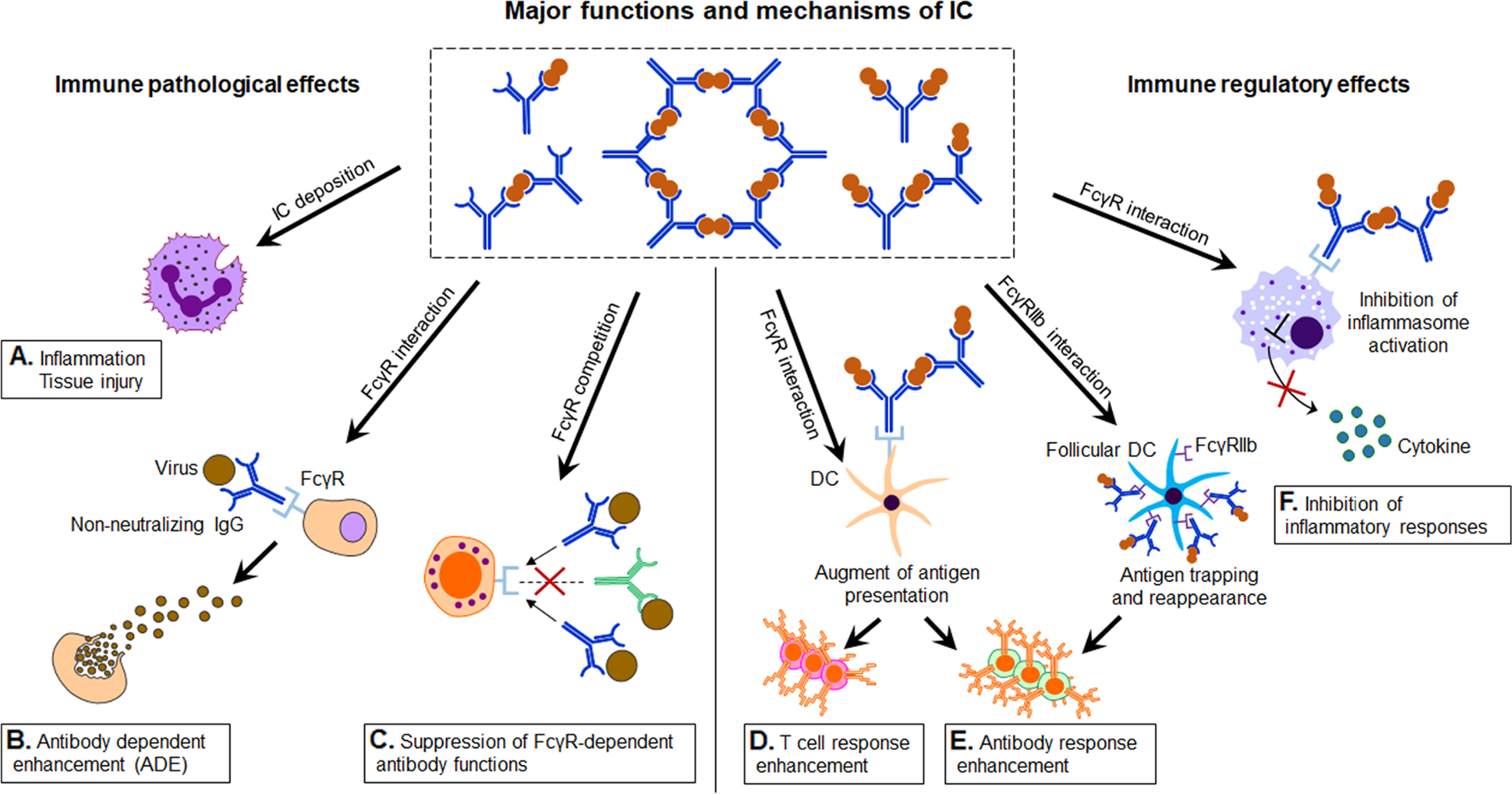Immune Complexes (ICs)

Immune Complexes (ICs): Formation, Functions, and Clinical Significance
Immune complexes (ICs) are formed when antibodies bind to antigens, creating a complex that plays a crucial role in the immune response. These complexes can be beneficial by facilitating the removal of pathogens but can also contribute to autoimmune diseases when they accumulate in tissues.
Formation of Immune Complexes
Immune complexes form when antibodies, produced by the immune system, bind to antigens such as proteins, toxins, or bacterial debris. This binding occurs in the liquid phase and is influenced by the concentration of both antibodies and antigens12.
Functions of Immune Complexes
- Immune Response Regulation: Immune complexes can regulate antibody production and activate immune cells like dendritic cells and macrophages, enhancing antigen presentation and T-cell activation12.
- Pathogen Removal: They facilitate the elimination of pathogens through mechanisms like opsonization and phagocytosis, where immune complexes are recognized and engulfed by phagocytes12.
- Complement Activation: Immune complexes can activate the complement system, which helps in eliminating pathogens but can also lead to tissue damage if not properly regulated4.
Clinical Significance
- Autoimmune Diseases: Accumulation of immune complexes in tissues can lead to autoimmune conditions like rheumatoid arthritis, lupus, and vasculitis, characterized by inflammation and tissue damage13.
- Vaccine Development: Immune complexes are being explored for their potential in vaccine development and immunotherapy, enhancing immune responses and modulating antigen presentation5.
- Disease Diagnosis: The presence of circulating immune complexes can be a diagnostic marker for certain conditions, although their persistence requires further evaluation2.
Conclusion
Immune complexes are integral to immune function, aiding in pathogen removal and immune regulation. However, their accumulation can lead to autoimmune diseases, highlighting the need for a balanced immune response.
Consult with Our Team of Experts Now!
At DrStemCellsThailand (DRSCT)‘s Anti-Aging and Regenerative Medicine Center of Thailand, we emphasize comprehensive evaluations and personalized treatment plans of Cellular Therapy and Stem Cells for managing various health conditions. If you have questions about Immune Complexes or would like more information on our services, consult with our experts today!
Consult with Our Team of Experts Now!
References
- Wikipedia: Immune Complex
- Solo Natura: Immune Complex
- Biology LibreTexts: Immune Complex Autoimmune Reactions
- PMC: Mechanisms of Immune Complex Mediated Neutrophil Recruitment
- EMBO Molecular Medicine: Immunoregulatory Functions of Immune Complexes
- Oxford Reference: Immune Complex
- NIH: Immune Complex















